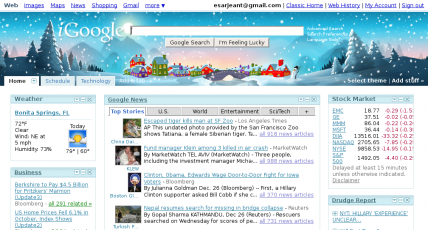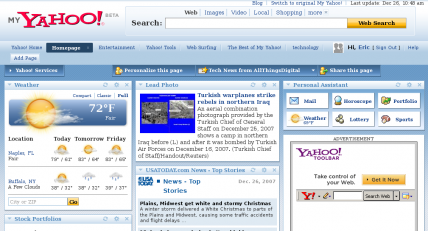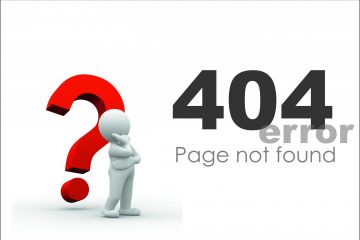A few years ago, the advent of DHTML and the now infamous IFRAME tag made it possible for a single HTML document to contain inline references to alternate content. Since these locations could be embedded within a floating window, it was then feasible to render aggregations of content from multiple sources.
Today the homepage portal wars are in full swing. Google recently premiered iGoogle and My Yahoo! revamped their personalized homepage with a fresh new look.
There are a few other contenders in this category, Pageflakes has a devoted following and Schmedley offers up a completely freeform experience with snazzy graphics. While there are certainly alternatives here, it seems evident that iGoogle is now the clear winner.
Yahoo has done themselves a disservice by including excessive interface bloat on their main screen. While the customizations are powerful they do not continue to any other page. It seems appropriate that external links would look different, but selecting the Yahoo finance link brings up a site that looks very much like the old Yahoo. It’s clearly a portal in the midst of an identity crisis.
To make matters worse, every page includes a well placed advertising graphic that readily consumes Internet bandwidth by refreshing every few minutes. Adding new content is a chore, and eventually the page customizations stop working altogether with a Loading graphic running ad-infinitum.
At the opposite end of the spectrum is iGoogle. After creating a new tab called Technology, it is pre-populated with content related to technology! The interface makes it easy to customize the layout and the lightweight rendering is extremely responsive on any computer. While you can customize the graphic at the top of the page, the look and feel has the same visual style as other Google sites.
“It almost seems that My Yahoo has made an effort to sabotage their leadership in the personalized homepage space.”Somewhere between the trim iGoogle and the unusable My Yahoo! is Pageflakes. While it won’t interpret what type of content you are adding based on the page name, Pageflakes does offer an excellent repository of pre-configured pages called Pagecasts. This is an easy way to get related content together onto a single page; however, unlike iGoogle it can’t be customized.
There are a some modules on Pageflakes that offer graphics to go with the stories, this is a pleasant feature that can help to break the monotony of text with links in vertical columns.
“While there are certainly alternatives here, it seems evident that iGoogle is now the clear winner.”You may want to take a look at Schmedley as well, although the layout is too flexible to make it a good portal page it does have some excellent web service integration. Imagine doing a search for airline flights with Expedia, Trevelocity and Orbitz all at the same time! A very handy tool to have when you need these kinds of comparisons.
It almost seems that My Yahoo has made an effort to sabotage their leadership in the personalized homepage space. On top of all the interface failures, Yahoo is virtually isolated from any other service by virtue of their proprietary email and calendering tools. Google has taken an open approach where you can integrate their services with any other personalized site or even desktop gadgets/widgets for that matter. We all know what happens to closed and proprietary systems, maybe Yahoo should take a second look at their portal strategy and consider an approach more congruous with their original site.




